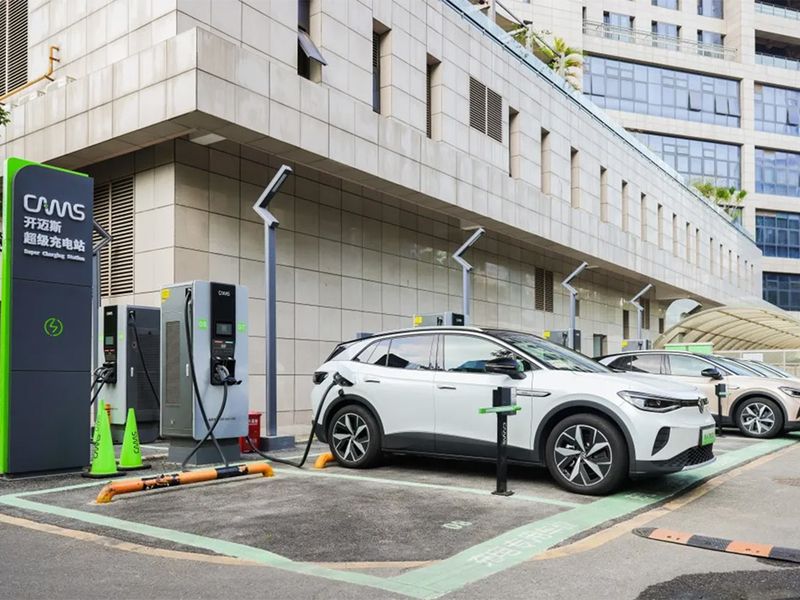
Volkswagen Group this week hatched an ambitious road map to hike global battery output at the same time its China unit declared a goal to sell 1.5 million electrified vehicles annually by 2025.
The target represents a giant leap from where VW Group stands now on China’s electrified battlefield: The largest carmaker in China remains a small player.
How can the German auto giant achieve the lofty goal? Details of the plan VW Group China CEO Stephan Wollenstein and his management team disclosed Tuesday via social media:
- VW Group will expand annual production capacity of vehicles based on the MEB EV platform to 600,000 annually at its joint ventures with China FAW Group Corp. and SAIC Motor Corp.
- 15 MEB-based models will be produced under various VW Group brands locally as of 2025, which are expected to generate 35 percent of total annual vehicle sales that year.
- VW Group is setting up two additional joint ventures majority owned by the company in China: one with new partner Jianghuai Automobile Co. to build MEB-based EVs for the VW brand beginning in 2023, and the other with existing partner FAW to produce EVs based on the PPE platform for Audi starting in 2024. According to information previously disclosed by VW Group China, the partnership with JAC can assemble up to 300,000 EVs a year. Production capacity for PPE-based Audi models at the FAW-VW joint venture remains unknown.
- To accommodate EV buyers’ needs for battery charging, VW Group will build up to 6,000 charging poles and 500 charging stations in eight major Chinese cities including Beijing and Shanghai this year. It plans to install 17,000 charging poles accumulatively in China by 2025.
The plan is fairly comprehensive. VW is slated to kick off sales of the ID4 compact electric crossover in China this month, which will be followed by the ID6, a bigger crossover.
To ensure battery supplies, VW Group has signed up China’s largest EV battery-cell producer, Contemporary Amperex Technology Co., and acquired a 26 percent stake in another major Chinese battery-cell supplier, Gotian High-Tech.
But one factor the plan doesn’t address is competition.
Tesla is now the largest EV brand in China – its Model 3 alone accounted for some 137,500 deliveries in China last year, according to the China Automobile Dealers Association.
By contrast, Volkswagen, the flagship brand of VW Group, only sold 52,300 EVs and plug-in hybrids last year.
Like Tesla, other automakers are also ramping up EV output and expanding EV lineups in China.
VW Group’s China unit predicts that China’s annual electrified vehicle sales will reach 4.75 million by 2025.
Given intensifying competition, it will be nothing but a tall order for the German group to boost annual local electrified vehicle sales to 1.5 million or its local market share for such vehicles to 32 percent in 2025.

